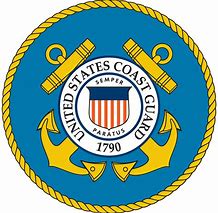U.S. Coast Guard Retiree
Mentoring & Transition Assistance Network
What It's For

Your USCG National Retiree Council is sponsoring this program to maintain a searchable database for our retiree community (and those soon to retire) to both request and offer personal mentoring and advice in a variety of areas. Thinking about relocating to a particular geographic area but would like insights from those that are living there? find some help here. Wondering how to start a small business? You can find a mentor here.
We are using a software service called Member Planet to host our registration process and database. It is both secure, easy to use and offers great flexibility. Once submitted, your registration is automatically forwarded to Mr. Bob Hinds, USCG Retiree Services Program Manager. He validates your eligibility then grants access to the database.
We hope that the USCG retiree community finds this program useful. Prior pilot programs showed a demand for such a program but lacked an easily accessible database maintained in the public domain.
A big thank you to our Capital Area Retiree Council for originally promoting a retiree mentoring program and sponsoring the first "proof of concept" pilot program!
We are using a software service called Member Planet to host our registration process and database. It is both secure, easy to use and offers great flexibility. Once submitted, your registration is automatically forwarded to Mr. Bob Hinds, USCG Retiree Services Program Manager. He validates your eligibility then grants access to the database.
We hope that the USCG retiree community finds this program useful. Prior pilot programs showed a demand for such a program but lacked an easily accessible database maintained in the public domain.
A big thank you to our Capital Area Retiree Council for originally promoting a retiree mentoring program and sponsoring the first "proof of concept" pilot program!
How It Works
Retirees/Transitioning Members Seeking a Mentor or Other Assistance
1. Self-Register below and only check the "Looking for a Mentor or Other Assistance" block during the registration process. You can expand on what type of help you are looking for when completing the "More About Me" section.
2. Once your registration is approved, you will have access to the searchable data base and can connect directly with a registered retiree that seems to fill your needs (appropriate mentoring expertise, local area knowledge, etc.) All members will be able to view your profile and are free to reach out to you as well. But the primary responsibility to connect belongs with you.
Retirees Offering Mentoring or other Assistance
1. Self-Register below making sure to check all Assistance Area blocks that apply to you. You can amplify how you can best help in your chosen areas while completing the "More About Me" section.
2. Once your registration is approved, your profile will appear in the database and can be searched by those seeking a subject matter mentor or other assistance. It is their primary responsibility to make initial contact with you. However, you can easily search the database to view the profiles of all members Looking for a mentor or other assistance and connect with any of them yourself.
IT'S THAT SIMPLE!!
1. Self-Register below and only check the "Looking for a Mentor or Other Assistance" block during the registration process. You can expand on what type of help you are looking for when completing the "More About Me" section.
2. Once your registration is approved, you will have access to the searchable data base and can connect directly with a registered retiree that seems to fill your needs (appropriate mentoring expertise, local area knowledge, etc.) All members will be able to view your profile and are free to reach out to you as well. But the primary responsibility to connect belongs with you.
Retirees Offering Mentoring or other Assistance
1. Self-Register below making sure to check all Assistance Area blocks that apply to you. You can amplify how you can best help in your chosen areas while completing the "More About Me" section.
2. Once your registration is approved, your profile will appear in the database and can be searched by those seeking a subject matter mentor or other assistance. It is their primary responsibility to make initial contact with you. However, you can easily search the database to view the profiles of all members Looking for a mentor or other assistance and connect with any of them yourself.
IT'S THAT SIMPLE!!

Initial Registration and member sign-in

Register Below by clicking on "Create an Account":
https://mp.gg/fjuvd
Sign-in Below after registration and account approval using your email and password selected during registration:
https://mp.gg/fjuvd
https://mp.gg/fjuvd
Sign-in Below after registration and account approval using your email and password selected during registration:
https://mp.gg/fjuvd
how to best search the database
-- Upon signing in, you will be on your member portal page. Click on the "Directory" link visible on the left side of the page
-- You will now be on the "Chose a Directory" page. Click on "USCG Mentoring and Assistance"
-- You are now in the "Directory". Click on the green "Smart Search" button in the upper right corner of the page.
-- You are now on the "Smart Search" page. Click on the "+Add Field" button.
-- You are now on the "Add Field" page. You can select one or multiple fields upon which to base your database search. The more fields you select, the more detailed your search becomes (i.e., you could select to search on the "Looking for a Mentor or Other Assistance" field only to view all who checked that box during registration; or you could select the "Relocation Advice" field and narrow your search by selecting a state or even further by selecting a zip code!)
-- Note: When searching on any of the Assistance Area fields make sure to click on the "select" button and then select the value revealed.
-- You will now be on the "Chose a Directory" page. Click on "USCG Mentoring and Assistance"
-- You are now in the "Directory". Click on the green "Smart Search" button in the upper right corner of the page.
-- You are now on the "Smart Search" page. Click on the "+Add Field" button.
-- You are now on the "Add Field" page. You can select one or multiple fields upon which to base your database search. The more fields you select, the more detailed your search becomes (i.e., you could select to search on the "Looking for a Mentor or Other Assistance" field only to view all who checked that box during registration; or you could select the "Relocation Advice" field and narrow your search by selecting a state or even further by selecting a zip code!)
-- Note: When searching on any of the Assistance Area fields make sure to click on the "select" button and then select the value revealed.

15 WAYS TO BE AN EFFECTIVE MENTOR

The most important job all mentors have is to help their mentees understand and define their goals. This is your first task as a mentor. Many mentees have difficulty mapping out their needs or arranging them according to priority. With the mentor’s help, mentees can clarify their goals, ensuring a fruitful mentor-mentee relationship.
2. Set expectations at the beginning of the engagement
It’s important to lay down some ground rules and expectations at the beginning of the mentorship. At the first meeting, define how often you’ll meet, where you’ll meet, and who will lead the discussion. Having these expectations in place will pave the way for a smooth mentoring experience.
3. Take a genuine interest in the person
Although mentorship is a professional relationship, taking a genuine interest in your mentee will enhance the experience. Getting to know each other will help you work better together. A key part of working together is helping your mentee define and reach their goals — whether short-term, long-term, or both.
4. Put the responsibility of growth in the mentee’s hands
A mentor’s role is to encourage, support, and advise. Your mentee will need to do the hard work of taking action. Have them break down their goals into smaller steps they can accomplish at a time so as not to feel overwhelmed.
5. Hold them accountable
You can help your mentee develop characteristics that will lead to their success by holding them accountable. They should be working towards their goals, and your job is to check in with them to see that they are doing what needs to be done. With your guidance, they can achieve most or some of their goals before the end of the relationship.
6. Understand how to give feedback to the mentee (discern when to be upfront or more constructive)
Knowing how to provide feedback to your mentee constructively depends largely on understanding them. Some mentees can handle a direct approach, while others will need you to soften the blow before they can hear what you have to say. Also, know when to advise them and when to keep your opinions to yourself. After all, being a great communicator is one of the 12 pivotal qualities of a great mentor.
7. Focus on the needs of the mentee rather than telling them what you think they need
Based on the goals of the mentee and their strengths and weaknesses, you should be able to discern what they need to succeed. But as you do this, be sure you’re not just focusing on what you think they need. Rather, sincerely consider what will help them reach their goals and attain growth.
8. Point out their blindspots if you spot them
Helping your mentee recognize their challenges - including their blind spots, is essential to a successful mentoring experience. If you can see something in your mentee that they need to overcome, help them recognize it.
9. Read between the lines to pull out insight from the mentee
Mentorships will allow you to practice emotional intelligence. You’ll need to listen to what your mentee tells you but also read between the lines to gain a better understanding of your mentee and their situation.
10. Share stories, not instructions
Most growth and development come from gaining understanding and wisdom. Simply telling your mentee what they should do won’t help them grow. And it will create a mentorship that is more like a manager-employee relationship. Share relatable stories from when you were in a similar position.
11. Guide your mentee to answer rather than telling them
One of your goals as a mentor is to help your mentee develop some independent thinking. Consider yourself more of a teacher than a drill sergeant. When they are trying to solve a problem, guide them to the right answer rather than tell them how to go about solving the issue. Always give them the opportunity to figure things out and develop problem-solving skills
12. Instill confidence
Empower your mentee by instilling confidence in them. When mentees can grow and learn to solve their issues independently, they’ll gain more confidence in themselves. From a mentee standpoint, this is vital to a successful mentoring experience.
13. Leverage your network to help your mentee and sponsor them if appropriate
Draw upon your connections to help your mentee grow. If they need some development in an area that you may not have much expertise in, put them in touch with someone from your network who can help. In the same way, if you hear of a new opportunity that your mentee would be right for, put their name forward and advocate for them.
14. Recognize growth and celebrate successes
As the mentorship evolves and your mentee reaches their goals, celebrate them. This can be as simple as sending them a message or card to acknowledge what they’ve accomplished and to show how proud you are of their success.
15. Be real with your mentee
Honesty is a key ingredient for a great mentoring experience. It helps build trust in a mentoring relationship. Share your failures and successes with your mentee so they can know it is not always rosy. They would also benefit from the lessons and know what pitfalls to avoid in their own journey.
ADDITIONAL tips
- You can update your profile anytime by clicking on your name in the upper right corner of your home page and then selecting "Edit My Profile" from the dropdown menu. When in "Edit My Profile" click on "Manage Privacy" and be sure that you have selected "I want to be included in group directories" under the "Group Directories" section. You can also select "Log Out" from the same dropdown menu.
- You can remove your profile completely from the Member Planet directory at any time. To begin, click on "My Groups" from your Member Panet home page and then click on the group "USCG Retiree Mentoring and Assistance". Click on the "Leave this Group" button that appears and your profile will be removed from the directory.

Questions?
Contact:
Mr. Bob Hinds
CWO4, USCG(Ret.), Honorary MCPO
USCG Retiree Services Program Manager
Office: 202-475-5451
E-Mail: Robert.C.Hinds@uscg.mil
www.dcms.uscg.mil/retiree
Mr. Bob Hinds
CWO4, USCG(Ret.), Honorary MCPO
USCG Retiree Services Program Manager
Office: 202-475-5451
E-Mail: Robert.C.Hinds@uscg.mil
www.dcms.uscg.mil/retiree
